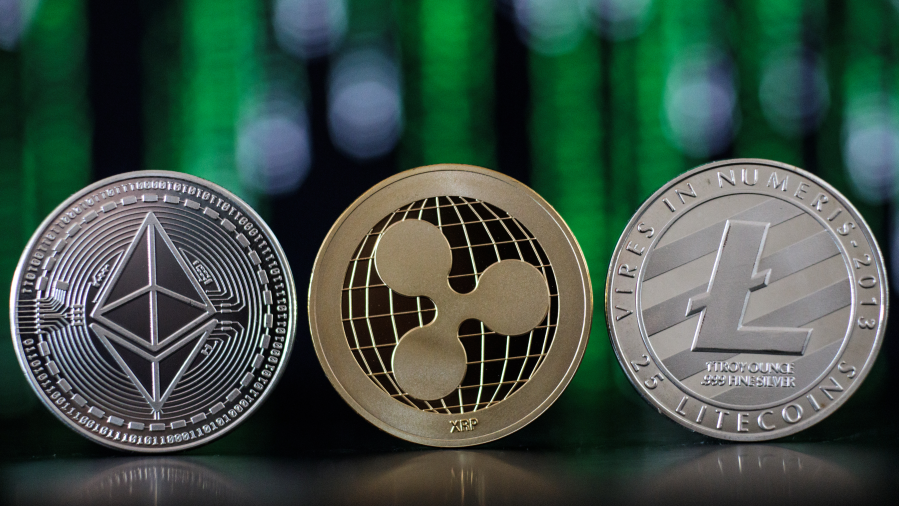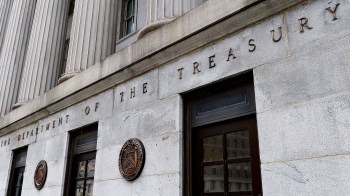The Fed explores a digital dollar

There are many different types of virtual money these days, among them cryptocurrencies like Bitcoin, Ethereum and Dogecoin, which are largely unregulated. Now more and more governments around the world are getting on board with the concept of their own official, regulated digital-only currencies.
These are referred to as central bank digital currencies, and the Federal Reserve recently took the first step in exploring the possibility of an American CBDC. It issued a 40-page paper outlining the potential benefits of, and concerns surrounding, a government-backed digital dollar.
Yaya Fanusie, an adjunct senior fellow at the Center for a New American Security, explains why the Fed is undertaking this research. The following is an edited transcript of our conversation.
Yaya Fanusie: There’s this expectation that business and commerce will get more digital, and if the central bank doesn’t have influence on digital money, there’s really concern that — one, innovation will sort of go where those advancements are in terms of digital money. And also, if the digital economy is outside the influence of the central bank, then monetary policy is going to be more difficult. So it’s really seen on the horizon, that we’re going to have a more digital economy, and our central bank money needs to keep up with that potential innovation.
Kimberly Adams: According to this Fed paper, what are the pros and cons of the U.S. having its own digital dollar?
Fanusie: Well, privacy is probably the number one concern that comes up when you think about a digital currency, because you have the potential for the government to actually have all of your transaction data. But I think the biggest benefit that the Fed is talking about is payment efficiency. If you have digital money which is issued by the central bank, you have the ability to have payments that can happen, that can be transacted 24/7. And also the potential for, some would say, financial inclusion. There’s the idea that you could create money that is more accessible by more people, because you could just use mobile technology, so that’s a possibility.

Adams: Can you say more about that?
Fanusie: This is where we really get into the theory. So what is proposed is that a lot of people don’t have access to bank accounts. There’s sort of a bar for getting a bank account, whether it’s ID, whether it’s your income. And what a lot of folks are proposing in the digital currency space is that if you made payments easier, if you made wallets, which were maybe more accessible, if you made money, digital money, cheaper to get and to use, that you could expand, you could provide more options so that people wouldn’t have to go through the banking system in the same way. But I must say this is something that is proposed. A lot of this hasn’t really borne out, because we don’t actually have too many CBDCs yet.
Adams: Which ones do we have?
Fanusie: Well, you have small economies like in the Bahamas, actually, that have piloted or have launched a digital currency that’s out. But again, that’s a much smaller economy. That’s been out for, I think, maybe about a year or so. But the one that most people are thinking about is China. So China’s central bank has been piloting a digital currency, its own central bank digital currency, for the past year, but it’s still in a pilot stage. Their aim is actually to make it more widely available during these upcoming Winter Olympics in Beijing.
Adams: What will it actually take to implement a digital currency here in the U.S., if lawmakers decide that’s the direction we want to go?
Fanusie: There’s maybe an obscure issue, but one that has to be dealt with: the question of digital ID. That might be necessary to tackle; keeping ID private, but then enabling your ID to be used for different types of transactions. That would probably really help the rollout for a central bank digital currency.
Adams: And where are we in the process of a potential rollout of a central bank digital currency here in the U.S.?
Fanusie: We’re in the exploration phase, which a lot of other countries are. But we’re at the phase of “let’s have a discussion.” I mean, the Fed paper says, pretty clearly, this is to signal to stakeholders that we need to discuss this, here are the questions that we think about. So we’re early, early stages, even though other countries are much further along.
Related Links: More insight from Kimberly Adams
My Marketplace colleague Matt Levin also looked into how the deployment of a digital currency might work in our day to day lives.
And here’s the Federal Reserve’s full paper.
I know the topic sounds dense, but the authors clearly made an effort to keep the explanations as simple as possible. It’s a good primer on the topic of digital currencies in general, plus an exploration of exactly what counts as money.
The Bahamas launched its digital currency before China’s. A Bloomberg story explains how the experiment has gone so far with what they’re calling the “sand dollar.”
Correction (Feb. 3, 2022): A previous version of this story incorrectly identified Yaya Fanusie as the author of a recent Wired UK article, “China’s digital yuan is a warning to the world.”
The future of this podcast starts with you.
Every day, the “Marketplace Tech” team demystifies the digital economy with stories that explore more than just Big Tech. We’re committed to covering topics that matter to you and the world around us, diving deep into how technology intersects with climate change, inequity, and disinformation.
As part of a nonprofit newsroom, we’re counting on listeners like you to keep this public service paywall-free and available to all.
Support “Marketplace Tech” in any amount today and become a partner in our mission.


















